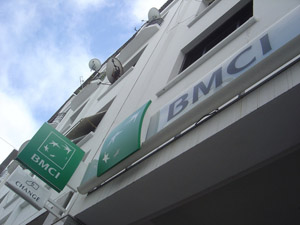 Since the early 2000s, technological advances in southern Mediterranean countries have contributed to improvements in the banking system. However, State interference in banking institutions and corruption is hindering their effectiveness. There is still great room for improvement.
Since the early 2000s, technological advances in southern Mediterranean countries have contributed to improvements in the banking system. However, State interference in banking institutions and corruption is hindering their effectiveness. There is still great room for improvement.
While Western banking systems are under the spotlight and their supremacy is being challenged, the Euro-Mediterranean Forum of Economic Institutes (FEMISE) has just published a comprehensive study (FEM33-04) of four banking systems in southern Mediterranean countries: Morocco, Egypt, Algeria and Tunisia.
Entitled “Convergence of Banking Regulations in the Southern Mediterranean: Impact of banking sector performance on growth”, this study reveals that Morocco is, by far, the country with the best banking system, with 6% of bad debt (in 2008), whereas this same rate fluctuates between 12 and 15% in the other countries. These percentages are still too high compared to the 3% observed in Europe!
Morocco has also distinguished itself over the years with an effort to privatise the banking system and by equipping itself with credit information systems. The introduction of credible deposit insurance and applying the Basel Norms have also played a decisive role in the economic development of the country and the arrival of foreign banks.
More rigour and transparency in financial transactions
“The Moroccan banking system has diversified but has not yet reached an optimal situation for development. Morocco must continue its efforts”, said Rym Ayadi, Head of the Research Unit on Financial Institutions and Prudential Policy at CEPS, who led the FEMISE study.
In contrast, the Algerian banking system, which is under State control, appears plagued by corruption and a lack of transparency in financial transactions. In Tunisia, during the reign of Ben Ali, significant funds were privately contracted. Were they paid back or bonded? Unlikely. In 2003 the rate of bad debt still accounted for one third of the banking sector (24.2% and 17.6% in 2007). “We observed failings in the internal control systems and far too much cronyism”, said Rym Ayadi.
The new democratic governments, much longed for by the initiators of the Arab Spring could, in this sense, introduce more rigour and transparency in financial transactions.
“Institutional variables determine economic development. These developing countries must continue their efforts in favour of an integrated approach between macroeconomic policy, (monetary policy), taxation and financial systems”, added Rym Ayadi, who, through this study, has demonstrated that an efficient, well-regulated banking sector has a positive impact on growth.
To do this, the public sector must disengage from financial institutions and set up truly independent banking supervisory authorities.
Photo: F. Debussy, Econostrum
Article by Nathalie Bureau du Colombier, Econostrum. It belongs to a series of articles published in the context of the partnership between Econostrum and Femise for the year 2011. These articles also feed the “Grand Angle” part of the Econostrum Website. You can find this topic and all information at the following address: www.econostrum.info. Registration for the Econostrum newsletter is available here: http://www.econostrum.info/subscription/


